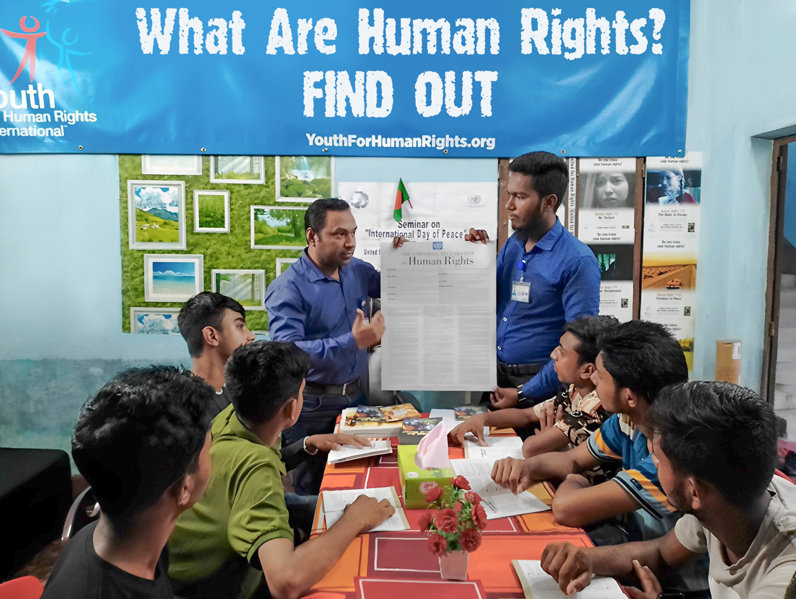Immigration Legal Adviser Champions Human Rights
Khondker Mustafiz Imran doesn’t let human rights violations go unchecked in Bangladesh.

Bangladesh is a South Asian country known for its beautiful landscapes. However, hidden from view is a darker side—discrimination, abuse, torture and other human rights violations. Working to address this is Khondker Mustafiz Imran, an immigration legal adviser and the leader of the United for Human Rights Chapter in Sylhet, Bangladesh. His affluent background enabled him to receive a solid education, and his parents instilled in him a sense of duty to give back to society.
Concerned about human rights violations in Bangladesh, Imran spent years searching for an organization focused on human rights education before encountering United for Human Rights and its sister organization, Youth for Human Rights International. He immediately knew this was what he had been looking for to help others. Imran got involved and began conducting human rights education events in the form of school seminars, quizzes and marches to reach all generations.
His goal? To educate others on the history of human rights and the 30 rights set out in the United Nations Universal Declaration of Human Rights (UDHR) to counter their violations.
In celebration of Human Rights Day on 10 December—when people around the world commemorate the anniversary of the adoption of the UDHR by the United Nations General Assembly in 1948—Imran organized a march, distributed What Are Human Rights? and The Story of Human Rights booklets and held a seminar and quiz competition.
Through his activities, Imran introduced more than 4,500 people to their rights, empowering them to become their own human rights defenders.
Two young girls he reached, Khadija and Kulsuma, had been expelled from their school because of discrimination.
“As they were both very bright students, the children of their neighborhood used to ask for their help with homework,” explains Imran. “Because of that, the village headman and some elders decided to stop the girls from going to school, falsely accusing them of ‘conducting anti-religious activities’ and charging them with ‘destroying the society.’ These allegations prevented their going to school and their families were considered ‘outcasts.’ But these charges obscured the true reason for these attacks—they were encouraging education of women. Despite their parents’ efforts to continue their education, the girls had to stay at home, where they spent their days caring for the cattle.”
“They succeeded because of their awareness of their right to education.”
During the pandemic, they learned about the United for Human Rights Chapter’s activities through social media. Khadija and Kulsuma immediately decided to meet with Imran and asked for his help.
“I explained to them the 30 articles of the United Nations Universal Declaration of Human Rights,” he said. “Especially Article 26, the Right to Education. I showed them that what was happening to them was a direct violation of this right and that they should claim it. They were inspired, started to fight for their right and won. They were admitted back to school. They succeeded because of their awareness of their right to education. They are now volunteers of United for Human Rights, promoting and protecting others’ human rights.”
This is one example of how Imran used his knowledge of human rights to defend against discrimination—and, most importantly, to protect the life and future of two young girls.
“My message to all learners is to protect your rights and respect the rights of others,” says Imran.
If you wish to help others defend their rights, start your own Human Rights Chapter or join an existing one at humanrights.com/join.
